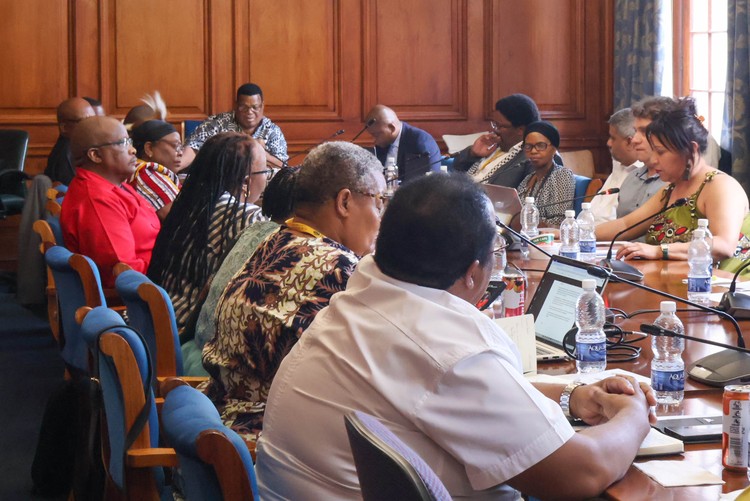Government slammed for failed farm ownership plans
Parliament asked to investigate worker equity schemes
Several organisations briefed Parliament’s Portfolio Committee on Land Reform and Rural Development on their concerns with government’s farm worker equity schemes. Photo: Liezl Human
Civil society organisations demanded answers on Wednesday from Parliament over what they claim has been a failed government project to uplift the lives of farm workers across the country.
“These farm workers became symbols of transformation while others cashed in on their name. It’s a betrayal of farm workers who feed our nation,” Brian Adams, CEO of the Surplus People Project (SPP) told MPs on Wednesday. He was speaking at a briefing to the Portfolio Committee on Land Reform and Rural Development over long-standing complaints about farm worker equity schemes.
Other organisations at the briefing included Corruption Watch, the Legal Resources Centre (LRC), Support Centre for Land Change (SCLC) and some farm workers from the Western Cape.
The farm worker equity schemes were set up by the government in the 1990s with the intention of economically improving the lives of historically disadvantaged farm workers by providing them with shares in farms they were working on, partial ownership and dividends.
Research by Corruption Watch and reports by farm workers to civil society organisations paints poor picture of how these schemes have fared. Many claim not to have received any dividends at all. Some allege that they’re often excluded from meaningful decision-making or access to financial information.
Adams told MPs that in many cases, the farm owners were listed as the trustees and farm workers as beneficiaries but with very little to no authority. “These schemes did not deliver on promises for farm workers who lived on these lands for generations. A number of beneficiaries died in poverty and their families still live in poverty, and with no tenure.”
SPP, Corruption Watch, the LRC, and SCLC also petitioned the Speaker of the National Assembly Thoko Didiza in September, calling on Parliament to take action and investigate the failures of the farm worker equity schemes.
“Despite more than R700-million in public investment, very few of these schemes have delivered any meaningful returns to farm worker beneficiaries,” they wrote.
On Wednesday, the groups also raised concerns about a Zalo Capital report commissioned by the then-Department of Agriculture, Land Reform and Rural Development (DALRRD). The report argued that many of these schemes had failed. Yet, no action has been taken despite these findings, said Adams.
The September petition called for implementation of the Zalo report’s recommendations, an audit of finances in farm worker equity schemes, for all findings to be made public, and commitment to develop alternatives that work.
Naomi Betana, of the Witzenberg Justice Coalition, said it was not even necessary for MPs to look at the Zalo report because some of the beneficiaries of the scheme were in the room. Betana said white commercial farmers benefited from the equity schemes while workers gained nothing.
She demanded that forensic audits be done immediately into each scheme.
David Neves, research lead at SPP, said they spoke to over 70 beneficiaries and most of them proved that the equity schemes had failed.
ANC MP Sylvia Izaks said that it was necessary for the portfolio committee to “deepen [its] oversight over the department” and do “proper monitoring” of their schemes. Izaks noted the department’s absence and said officials should be present when they discuss these issues.
Committee chairperson Mangaqa Mncwango said they would ask representatives from the department to respond to the petition. “I assure you your frustrations are not misplaced,” he said.
He said the committee would conduct oversight visits at some of the equity scheme farms.
Support independent journalism
Donate using Payfast

Don't miss out on the latest news
We respect your privacy, and promise we won't spam you.
Next: Women in informal settlements are often silenced
Previous: Ten takeaways from today’s budget speech
© 2025 GroundUp. This article is licensed under a Creative Commons Attribution-NoDerivatives 4.0 International License.
You may republish this article, so long as you credit the authors and GroundUp, and do not change the text. Please include a link back to the original article.
We put an invisible pixel in the article so that we can count traffic to republishers. All analytics tools are solely on our servers. We do not give our logs to any third party. Logs are deleted after two weeks. We do not use any IP address identifying information except to count regional traffic. We are solely interested in counting hits, not tracking users. If you republish, please do not delete the invisible pixel.

